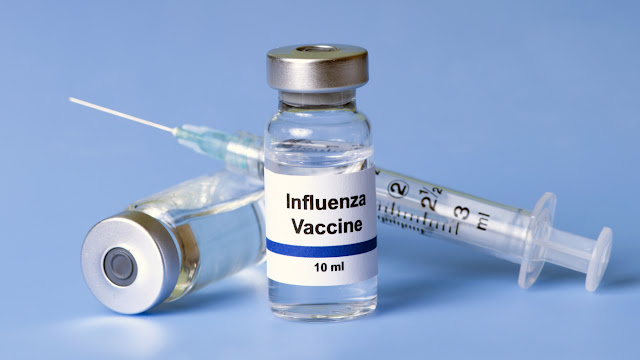Influenza Vaccines Safeguarding Individuals From Contacting And Spreading The Flu Virus
 |
| Influenza Vaccines |
Influenza,
commonly known as the flu, is a viral respiratory illness that affects millions
of people worldwide every year. Influenza viruses undergo frequent mutations,
leading to the emergence of new strains and making it necessary to develop
vaccines that can effectively combat these ever-changing viruses. Influenza Vaccines are designed to
protect individuals from contracting and spreading the flu, reducing the
severity of symptoms and the risk of complications. Influenza vaccine work by
stimulating the immune system to produce antibodies against the influenza
viruses contained in the vaccine. These antibodies help the immune system
recognize and destroy the viruses when the body is exposed to them. Each year,
the World Health Organization (WHO) and other global health agencies monitor
the circulating influenza strains and make recommendations for the composition
of the seasonal influenza vaccine.
According To Coherent Market
Insights The Influenza
Vaccines Market Is Anticipated To Reach A Value Of US$ 5,965.9 Mn In 2022
And Grow At A CAGR Of 4.2% From 2022 To 2030.
There
are several types of Influenza Vaccines
available, including inactivated vaccines, live attenuated vaccines, and
recombinant vaccines. Inactivated vaccines contain killed influenza viruses,
while live attenuated vaccines contain weakened forms of the viruses.
Recombinant vaccines, on the other hand, are produced using genetic engineering
techniques to create viral proteins that are similar to those found in the
influenza viruses. All of these vaccines are designed to trigger an immune
response without causing the flu itself. Influenza
Vaccines are typically administered via injection, although nasal spray
formulations are available for certain individuals. The vaccine can be given to
people of all ages, but specific recommendations exist for different age groups
and populations.
A
Microneedle
Flu Vaccine is primarily used to treat influenza and uses several types
of microneedles for the delivery of medications and vaccines.
For
instance, children under six months of age are not eligible for vaccination,
while older adults and individuals with certain medical conditions are
encouraged to receive the vaccine to reduce their risk of complications. The
effectiveness of Influenza Vaccines can
vary from season to season, depending on the match between the circulating
viruses and the strains included in the vaccine. Despite this, getting
vaccinated is still strongly recommended as it provides a degree of protection
and can reduce the severity of the illness even if infection occurs.
Vaccination is especially important for individuals at high risk of
complications, such as young children, pregnant women, older adults, and people
with weakened immune systems.
For More Details On Influenza Vaccines Visit:
Https://Www.Globenewswire.Com/News-Release/2022/06/22/2467213/0/En/Global-Influenza-Vaccines-Market-To-Surpass-US-12-488-6-Million-By-2030-Says-Coherent-Market-Insights-CMI.Html
You Can Also Read Press Release: Https://Www.Coherentmarketinsights.Com/Press-Release/Global-Influenza-Vaccines-Market-To-Surpass-Us-60-Billion-By-2025-889



Comments
Post a Comment